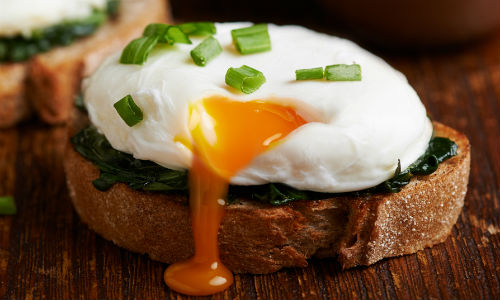5 top tips for a great post-race recovery
Why recovery matters
Proper post-race recovery is the difference between feeling aches, pains, and soreness for a week and getting back on your feet the day after a race.
If you don’t prioritise recovery, your muscles may cease up, you’ll get dehydrated, and you’ll feel terrible for the week after your race. If you know what your body needs and you take recovery seriously, you’ll be back to normal with a bit of soreness the following day.
What recovery looks like differs from person to person. It’s still important to remember that there are a few rules that you should never ignore.
Things you should never ignore
- Hydration
- Rehydration
- Pacing your race
- Nutrition during the race
- Post-race nutrition
- Stretching
- Rest
When does recovery start?
Recovery starts before you cross the finish line.
By eating right before and during the race and drinking the right fluids to prevent dehydration, you are setting yourself up for a smooth and clean recovery.
If you have a messy race where things don’t go to plan, you might find you’re more tired than usual at the end of the race. In these situations, recovery is even more important.
1. Refuel with quality food

Good nutrition is the cornerstone of recovery. As the old adage goes, you get what you put in.
Whilst it’s tempting to gorge ourselves on junk food after a race (this definitely has its place), it is important to prioritise the macronutrients and vitamins that our body needs. Eating a balanced diet that’s rich in carbohydrates, proteins, and healthy fats will replenish glycogen stores and repair damaged muscle tissue at a faster rate.
Quality foods also provide the body with essential antioxidants which reduce inflammation and support immune functions which can be depleted after a race.
Examples of good post-race meals include poached eggs on wholegrain bread, Greek yoghurt with granola and mixed berries, or a natural yoghurt-based smoothie with banana.
- Interested in what nutrition can do for you? Click here to learn more
Calories and racing
How many calories you burn during your race depends on how quickly you move and how much you weigh. For example, someone who runs a 10k in an hour and weighs 11 stone will burn around 700 calories during the race.
Depending on your intensity and distance, you should have a good idea of roughly how many calories you’ll burn during a race. If you’re racing regularly, you should be using this information to structure a meal plan that gives the right number of calories to fuel your training.
If in doubt…
If you’re not sure what to eat, prioritise good quality proteins, carbs, and fats.
- Carbohydrates will provide you with the necessary energy you need to fuel muscle recovery
- Proteins are essential for repairing your damaged muscles
- Unsaturated fats help with hormone production and aid with nutrient absorption
2. Keep moving
Ever noticed that you feel worse if you sit down and stop right after a race? While reducing the amount and intensity of exercise after a race is a good idea, putting your feet up for days can have a detrimental effect.
Prevent your muscles from seizing up and keep the endorphins flowing by doing a bit of gentle exercise in the days after your race. Make sure you also complete an appropriate cool down once you’ve crossed the finish line.
3. Get some extra sleep
Quality deep sleep is an essential part of the recovery process. The following few days after your race you’ll feel more tired than usual. Listen to your body and try to go to bed an hour earlier than usual.
Recovery is the reason we need to sleep every night. Sleep helps us to recover from our efforts and recharge, so we often need more sleep if we’ve done more strenuous exercise.
During deep sleep, growth hormone production increases, aiding in muscle repair and tissue regeneration. Sleep is also crucial for mental rejuvenation, mood stability, and cognitive function. Athletes who prioritise rest tend to recover faster, allowing them to resume training soon after a race.
Other benefits of extra sleep include reduced inflammation and improved immune function.
4. Have a nice long soak
A warm soak in the bath can work wonders after a race. Plus, washing all that dirt and sweat off feels great too.
Prolonged exposure in warm water helps relax our muscles, reduce soreness, and enhance blood circulation. All of these can help a runner, cyclist, or swimmer recover faster after a race and return to their regular training schedule more quickly.
Having a bath is also associated with relaxation which is essential for our mental well-being. Feeling calm can help you maintain a positive attitude and build mental resilience, both of which contribute to longevity in sports.
5. Use a foam roller or get a massage
Foam rolling and other similar massage techniques aid with muscle recovery and flexibility.
When you use a foam roller, pressure is applied to the soft tissue in and around the affected muscle. This triggers our parasympathetic nervous system which is responsible for inducing relaxation.
When it comes to post-race recovery, foam rolling is a highly popular and effective method of gradually reducing the presence of muscle knots. Knots are sore spots that can develop when repetitive motions cause our muscles to contract involuntarily, creating a tightness that reduces mobility and flexibility.
Foam rolling isn’t just useful after a race. The regular use of a foam roller and similar massage techniques can help athletes and amateurs alike prevent the onset of chronic muscle issues and promote long-term performance and longevity.
- Interested? Click here to learn more about foam rolling
Last updated Monday 20 May 2024
First published on Friday 15 January 2016

